Are shiitake mushrooms good for you? The answer is a resounding yes! With a rich history in traditional medicine, these nutrient-dense mushrooms offer multiple health benefits.
- Immune Support: Shiitake mushrooms contain compounds that may bolster your immune system.
- Heart Health: They help manage cholesterol levels, supporting cardiovascular health.
- Nutritional Value: Provide essential vitamins and minerals with low calories.
Shiitake mushrooms (Lentinula edodes) have been celebrated for centuries, especially in East Asia, where they are both a culinary marvel and a staple in traditional health practices. These mushrooms are not only flavorful but also packed with nutrients, making them a delightful addition to your diet.
I'm Brandi Garden, co-founder of Eversio Wellness. My journey into functional mushrooms began with a personal quest for natural wellness, leading to the creation of health solutions backed by the power of fungi. Dig into shiitake mushrooms and find how they're not just good for you, but a cornerstone of traditional medicine with myriad benefits.

Are Shiitake Mushrooms Good for You?
Immune Support
Shiitake mushrooms are a powerhouse when it comes to boosting the immune system. They contain beta-glucans and polysaccharides, which play a crucial role in enhancing your body's defense mechanisms. Studies have shown that consuming shiitake mushrooms daily can improve immune markers and decrease inflammation levels. These mushrooms help increase the activity and number of immune cells like natural killer and T cells, crucial for fighting off infections. This makes shiitake mushrooms a natural choice for those looking to strengthen their immune health.
Heart Health
When it comes to heart health, shiitake mushrooms shine by helping manage cholesterol levels. They contain compounds like eritadenine, which aids in cholesterol breakdown, reducing the risk of heart disease. Research indicates that rats fed a high-fat diet showed a reduction in cholesterol levels and plaque buildup when shiitake mushrooms were included in their diet. This suggests that including shiitake mushrooms in your meals could be a heart-smart choice, potentially lowering your risk of cardiovascular issues.
Cholesterol Management
Shiitake mushrooms are champions in cholesterol management due to their unique blend of nutrients. They contain sterols and beta-glucans, which help lower LDL (bad) cholesterol levels in the blood. These compounds work by blocking cholesterol absorption in the intestines, thus promoting healthier cholesterol levels. Regular consumption of shiitake mushrooms can be a delicious and effective way to support your cardiovascular health and keep cholesterol in check.
Incorporating shiitake mushrooms into your diet is not just about enjoying their savory taste; it's about using their natural health benefits. Whether you're aiming to boost your immune system, support heart health, or manage cholesterol levels, shiitake mushrooms are a fantastic addition to your wellness routine.
Nutritional Profile of Shiitake Mushrooms
Shiitake mushrooms are not only a culinary delight but also a nutritional powerhouse. These mushrooms are rich in essential vitamins, minerals, and amino acids that contribute to overall health and wellness.
Vitamins
Shiitake mushrooms are an excellent source of B vitamins, including riboflavin (B2), niacin (B3), and pantothenic acid (B5). These vitamins are crucial for energy production and maintaining a healthy nervous system. Additionally, shiitake mushrooms are one of the few natural sources of vitamin D, which is vital for calcium absorption and bone health. When exposed to UV light, shiitake mushrooms can synthesise vitamin D, making them a valuable addition to your diet, especially during winter months when sunlight exposure is limited.
Minerals
Packed with essential minerals, shiitake mushrooms provide a significant amount of copper, selenium, and zinc. Copper is necessary for maintaining healthy blood vessels, nerves, and immune function. Selenium acts as a powerful antioxidant, helping to protect cells from damage, while zinc plays a crucial role in immune function and wound healing. Just four dried shiitake mushrooms can provide up to 39% of your daily copper needs, highlighting their impressive mineral content.
Amino Acids
Amino acids are the building blocks of proteins, and shiitake mushrooms contain many of the same amino acids as meat, making them an excellent option for vegetarians and vegans. These amino acids support various bodily functions, including muscle repair, immune response, and neurotransmitter production.

With their impressive nutritional profile, shiitake mushrooms are more than just a tasty ingredient; they are a nourishing addition to any diet. Whether you're looking to boost your vitamin intake, support immune health, or enjoy a plant-based source of amino acids, shiitake mushrooms are good for you and can play a vital role in your wellness journey.
Next, let's explore the specific health benefits that shiitake mushrooms offer, including their role in immune system support, heart health, and more.
Health Benefits of Shiitake Mushrooms
Immune System Boost
Shiitake mushrooms are a fantastic ally for your immune system. They contain beta-glucans and polysaccharides, which are compounds known to improve immune function. These components help increase the activity of immune cells such as natural killer cells and T cells. Beta-glucans have been extensively studied for their role in modulating the immune response, making shiitake mushrooms a natural choice for those looking to strengthen their body's defenses against infections and diseases. Regular consumption of these mushrooms can lead to higher levels of immunoglobulin A (IgA), an antibody that plays a critical role in mucosal immunity.
Heart Health
Shiitake mushrooms are also beneficial for heart health. They contain eritadenine, a compound that helps lower cholesterol levels. This compound works by promoting the efficient removal of cholesterol from the bloodstream, which can help reduce the risk of cardiovascular diseases. A study on hypercholesterolemic rats showed that dietary shiitake mushrooms significantly improved lipid profiles, suggesting similar benefits in humans. The presence of polysaccharides in shiitake mushrooms further supports cardiovascular health by reducing inflammation and oxidative stress.
Cancer Defense
Lentinan, a unique polysaccharide found in shiitake mushrooms, is a powerful compound in cancer defense. It improves the body's ability to fight tumors by activating immune cells and increasing the production of cytokines, proteins that aid in immune response. Lentinan has shown promise in clinical settings, especially in combination with chemotherapy, to improve survival rates in patients with advanced gastric cancer. This compound's ability to inhibit tumor growth makes shiitake mushrooms a potential ally in cancer prevention and treatment.
Bone Health
Vitamin D is essential for strong bones, and shiitake mushrooms are one of the few plant-based sources of this vital nutrient. When exposed to UV light, they produce vitamin D2, which supports calcium absorption—a crucial process for maintaining bone density and preventing conditions like osteoporosis. Including vitamin D-rich shiitake mushrooms in your diet can be particularly beneficial during winter months when sunlight exposure is limited.
With such a diverse range of health benefits, shiitake mushrooms are good for you and can play an integral role in supporting your overall wellness. Next, let's explore how you can easily incorporate these nutritious mushrooms into your daily diet.
How to Incorporate Shiitake Mushrooms into Your Diet
Shiitake mushrooms are a versatile ingredient that can improve the flavor and nutritional value of many dishes. Here's how you can start adding them to your meals:
Cooking Tips
Fresh vs. Dried: Fresh shiitake mushrooms have a rich, earthy flavor, while dried shiitakes offer a more concentrated taste. Dried mushrooms need to be soaked in water for about an hour before cooking to rehydrate them. This soaking water can also be used as a flavorful broth base.
Prepare the Caps: Always remove the tough stems before cooking, as they remain chewy. Save these stems for making stock or broth to avoid waste.
Flavor Improvement: Shiitake mushrooms release their distinct umami flavor when cooked. Sauté them with a bit of oil and salt to open up their full potential. This process also helps in enhancing the flavors in broths and sauces.
Recipe Ideas
Stir-Fries: Add shiitake mushrooms to your favorite stir-fry recipe. Their umami flavor complements vegetables and proteins alike, making them a great addition to any mix.
Pasta Dishes: Sauté shiitakes with garlic and olive oil, then toss them with pasta. Add a sprinkle of parmesan for a delicious, savory dish.
Soups: Use shiitake mushrooms to make a hearty soup. Their rich flavor pairs well with miso or chicken broth, creating a comforting meal.
Risottos and Rice Dishes: Shiitakes can transform a simple risotto or rice dish into a gourmet meal. Their texture and taste add depth to the dish.
Dried Shiitake Uses
Dried shiitake mushrooms are a pantry staple. They are perfect for long-term storage and can be used in various dishes:
Broths and Stocks: Use the soaking liquid from dried shiitakes as a base for broths and stocks. It adds a depth of flavor that improves soups and sauces.
Tea: Make a savory tea by simmering rehydrated shiitakes in water. This can be a soothing drink with potential health benefits.
Incorporating shiitake mushrooms into your diet is not only easy but also beneficial for your health. Whether fresh or dried, these mushrooms are a flavorful way to boost your meals.
Next, we'll discuss the potential risks and side effects of consuming shiitake mushrooms, ensuring you enjoy them safely.
Potential Risks and Side Effects
While shiitake mushrooms are packed with nutrients, they can also come with some risks. Let's explore these so you can enjoy them safely.
Shiitake Dermatitis
Shiitake dermatitis is a rare skin reaction that can occur after eating raw or undercooked shiitake mushrooms. It's caused by a compound in the mushrooms called lentinan. This reaction usually manifests as an itchy, red rash that looks like a series of scratches or whip marks.
Cooking shiitake mushrooms thoroughly can prevent this reaction. However, if you experience a rash after consuming them, it's best to avoid eating raw shiitakes in the future.
Allergic Reactions
As with any food, some people may be allergic to shiitake mushrooms. Symptoms of an allergic reaction can include:
- Hives
- Swelling
- Difficulty breathing
If you suspect you have an allergy, stop consuming shiitake mushrooms and consult a healthcare professional.
Purine Content
Shiitake mushrooms contain purines, natural compounds found in many foods. For most people, this isn't a problem. However, those with gout or kidney issues may need to monitor purine intake, as purines can break down into uric acid, potentially triggering gout attacks.
Moderate consumption of shiitake mushrooms is generally considered safe, but it's wise to consult with a healthcare provider if you have concerns about purine intake.

Understanding these potential risks ensures you can enjoy shiitake mushrooms safely. Next, we'll answer some frequently asked questions to address common concerns about shiitake mushrooms.
Frequently Asked Questions about Shiitake Mushrooms
What are the side effects of consuming shiitake mushrooms?
While shiitake mushrooms are nutritious, some people might experience side effects. A rare condition called shiitake dermatitis can occur if you eat raw or undercooked shiitakes. This results in an itchy, red rash. Cooking the mushrooms thoroughly usually prevents this reaction.
Some individuals may also have allergic reactions. Symptoms include hives, swelling, or difficulty breathing. If you notice these symptoms, stop eating shiitake mushrooms and seek medical advice.
Who should avoid shiitake mushrooms?
People with gout or kidney issues should be cautious. Shiitake mushrooms contain purines, which can break down into uric acid and potentially trigger gout attacks. It's best to consult a healthcare provider if you're concerned about purine intake.
Additionally, those with mushroom allergies should avoid shiitakes to prevent allergic reactions.
Can shiitake mushrooms be combined with medications?
Shiitake mushrooms are generally safe to eat, but they could interact with certain medications. For example, if you're on blood thinners or have a condition that affects blood clotting, it's wise to consult a healthcare provider before adding shiitakes to your diet. This is due to the potential anticoagulant effects of certain compounds in the mushrooms.
For personalised advice, always talk to your doctor, especially if you're on medication or have specific health conditions.
Open up Nature’s Potential with Eversio!
We believe in the transformative power of nature, especially when it comes to enhancing your health and well-being. Our focus on high-potency mushroom extract supplements is rooted in the understanding that functional mushrooms like shiitake offer remarkable health benefits, particularly for immune support and overall wellness.
Our products are crafted with care, using USDA Organic Certified whole fruiting body mushrooms. This certification assures you that our mushrooms are grown without synthetic fertilisers, pesticides, or genetically modified organisms. We take pride in using the full potential of these mushrooms through dual extraction methods, ensuring maximum bioavailability and potency. This means that the beneficial compounds in our supplements are more readily absorbed and used by your body, providing you with the full spectrum of health benefits that shiitake mushrooms have to offer.
Find more about the potential of shiitake mushrooms and how they can benefit you by visiting our dedicated page on shiitake mushrooms. Accept the power of mushrooms and take a step towards a healthier, more vibrant life with Eversio Wellness!

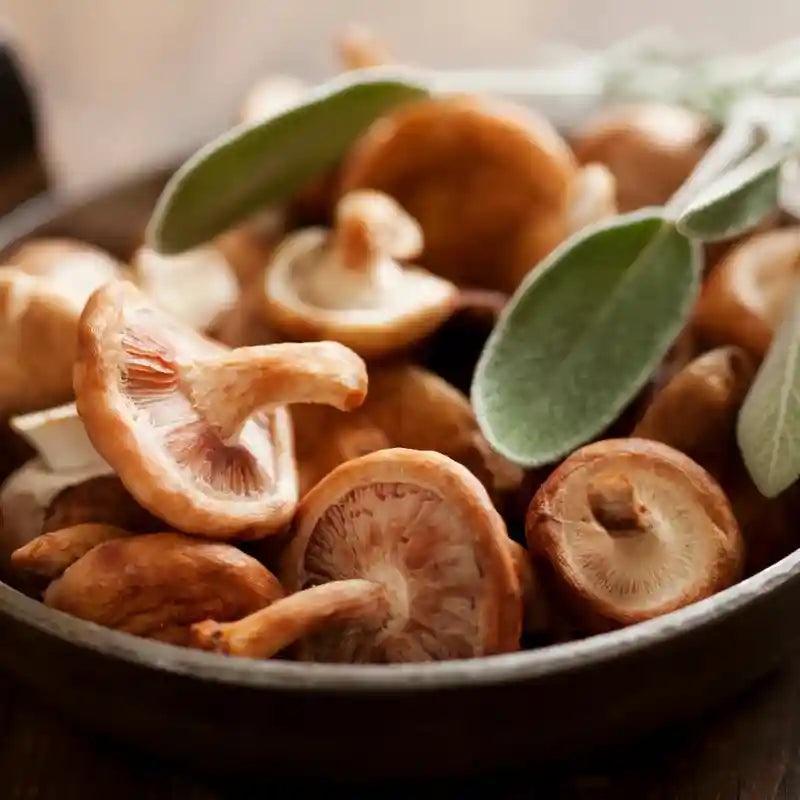
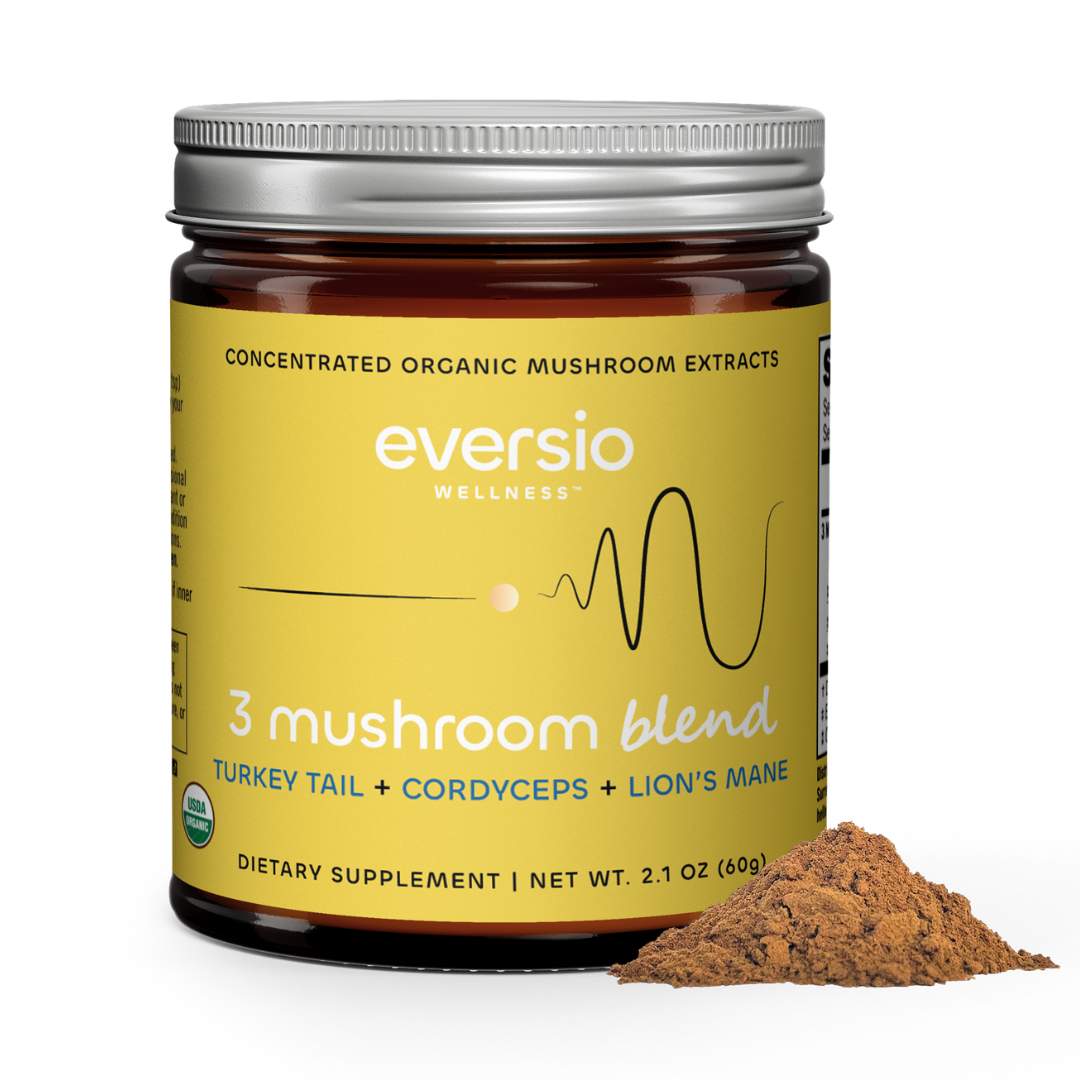
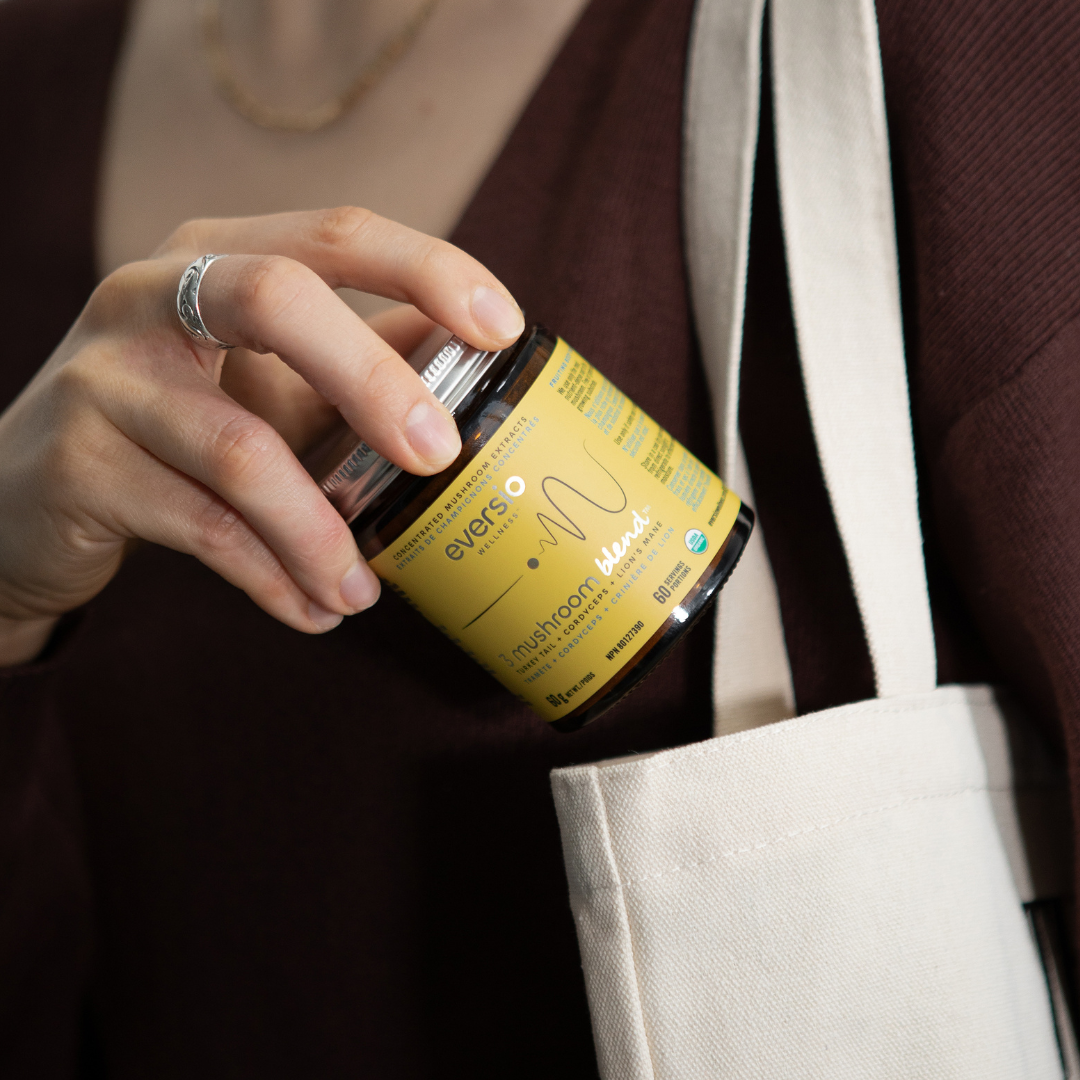

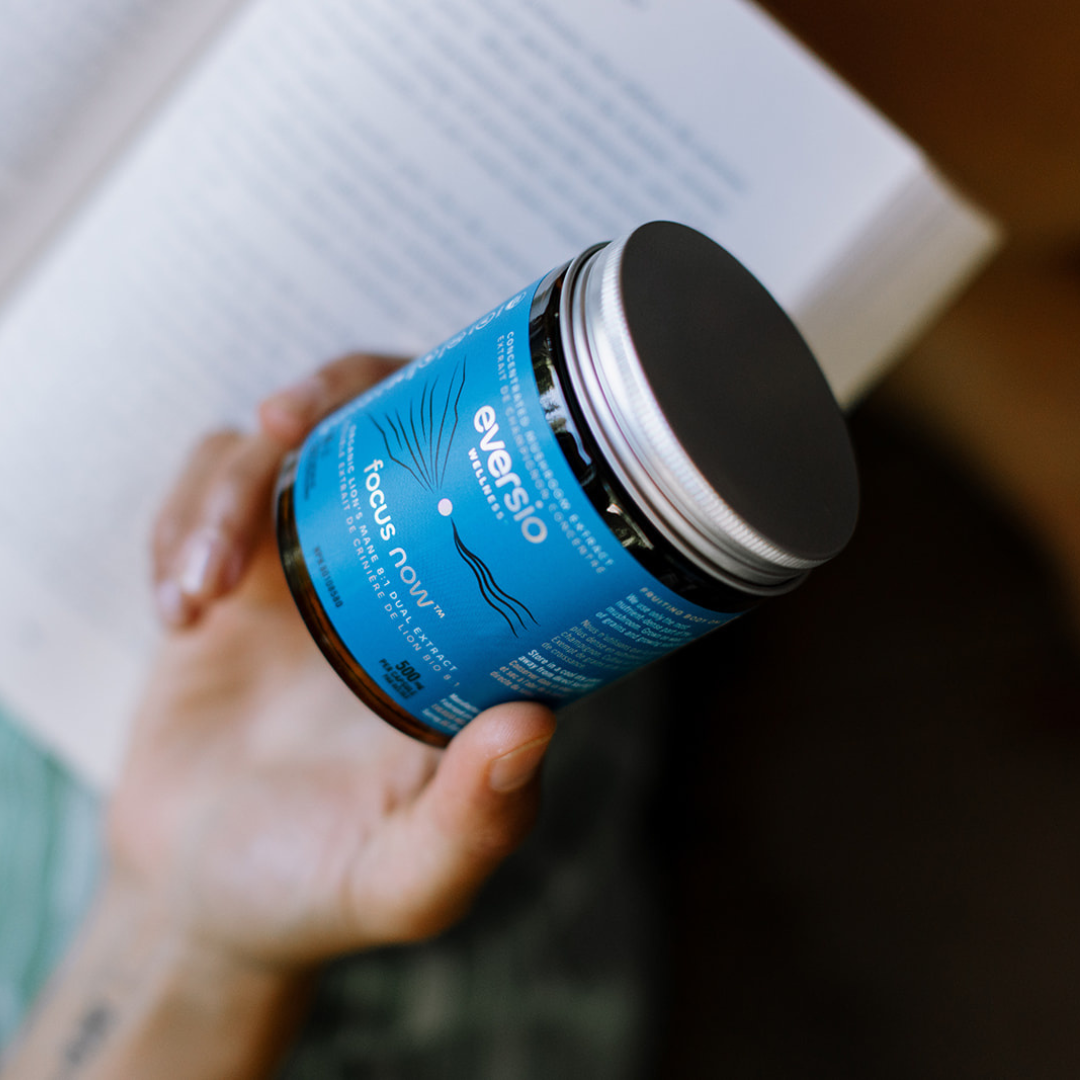
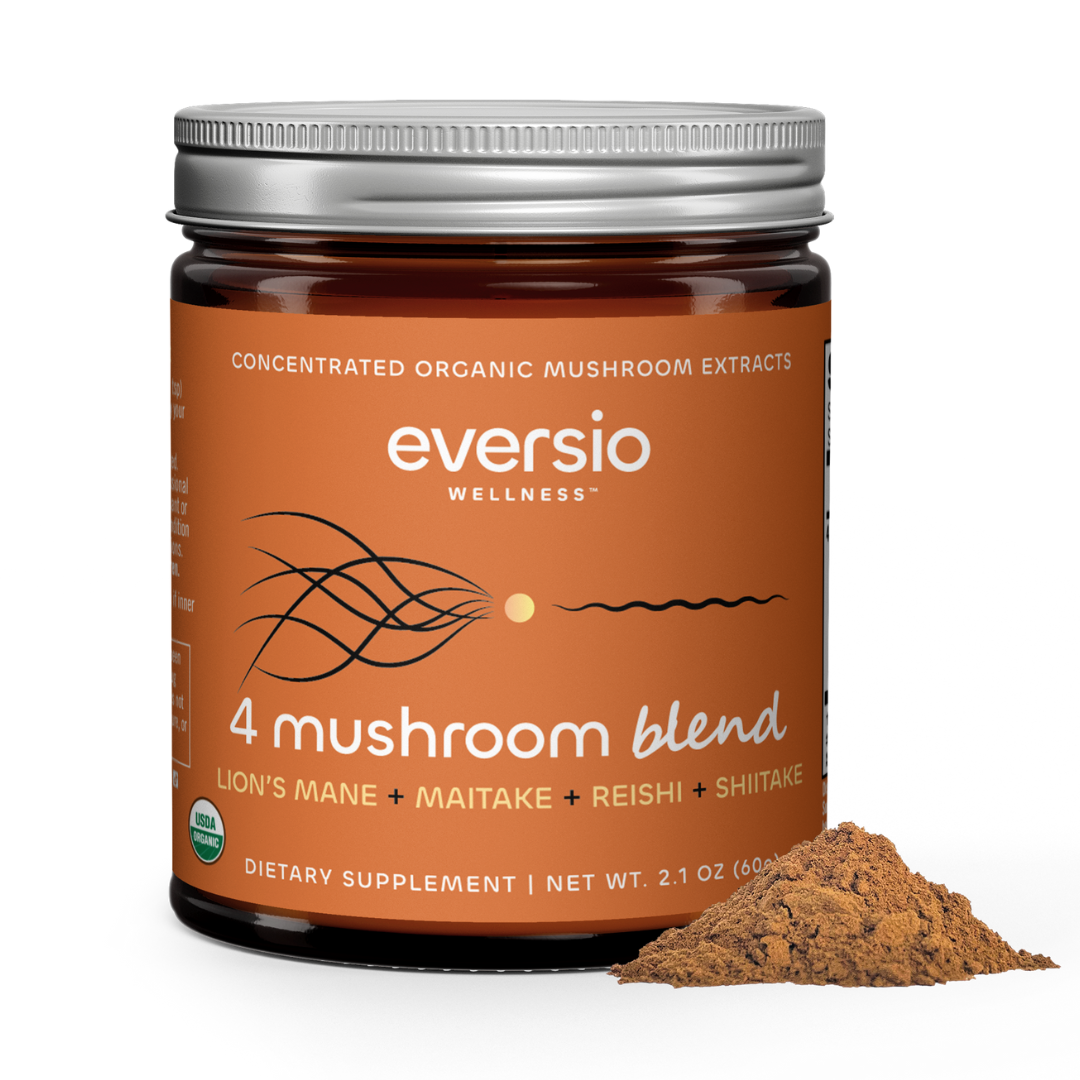
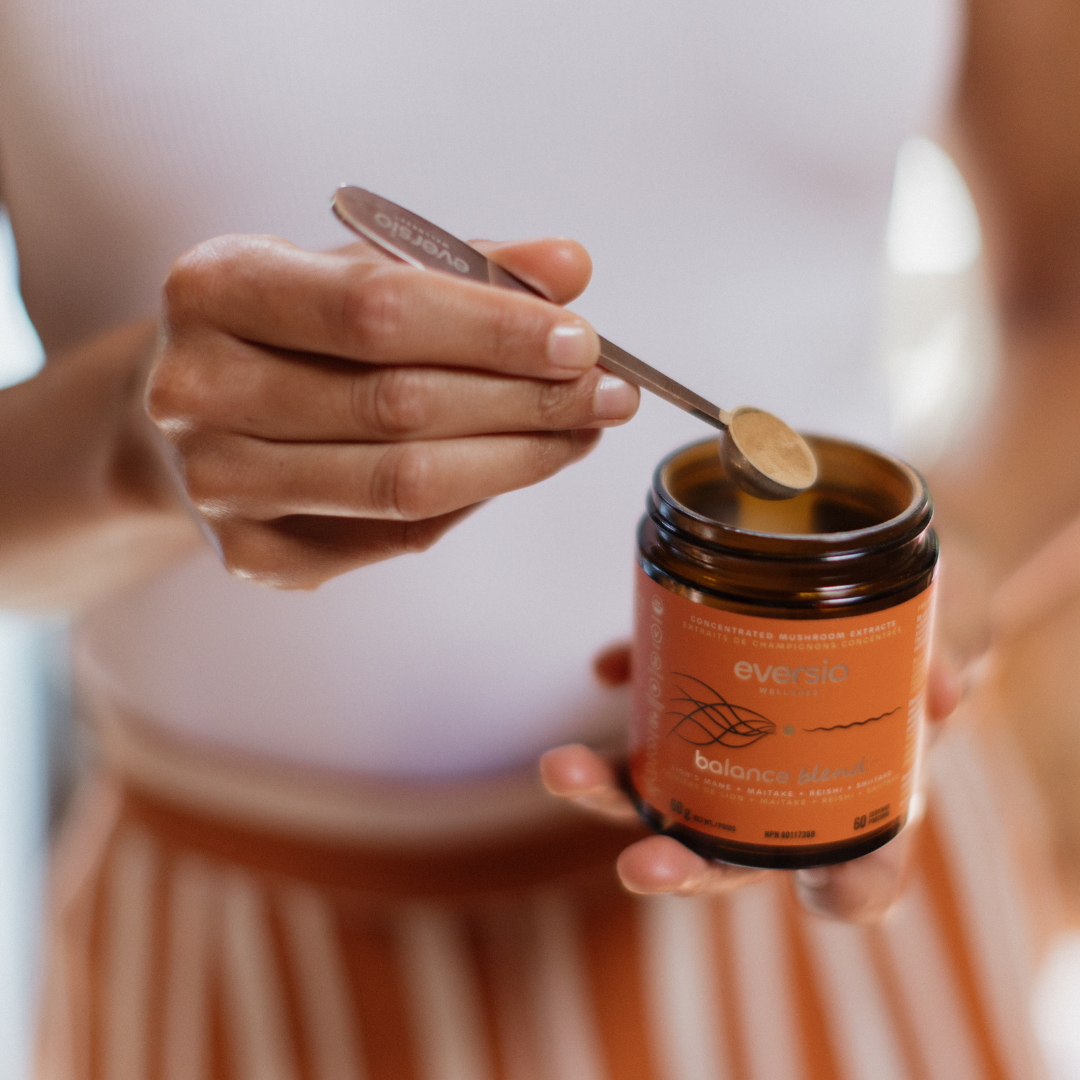
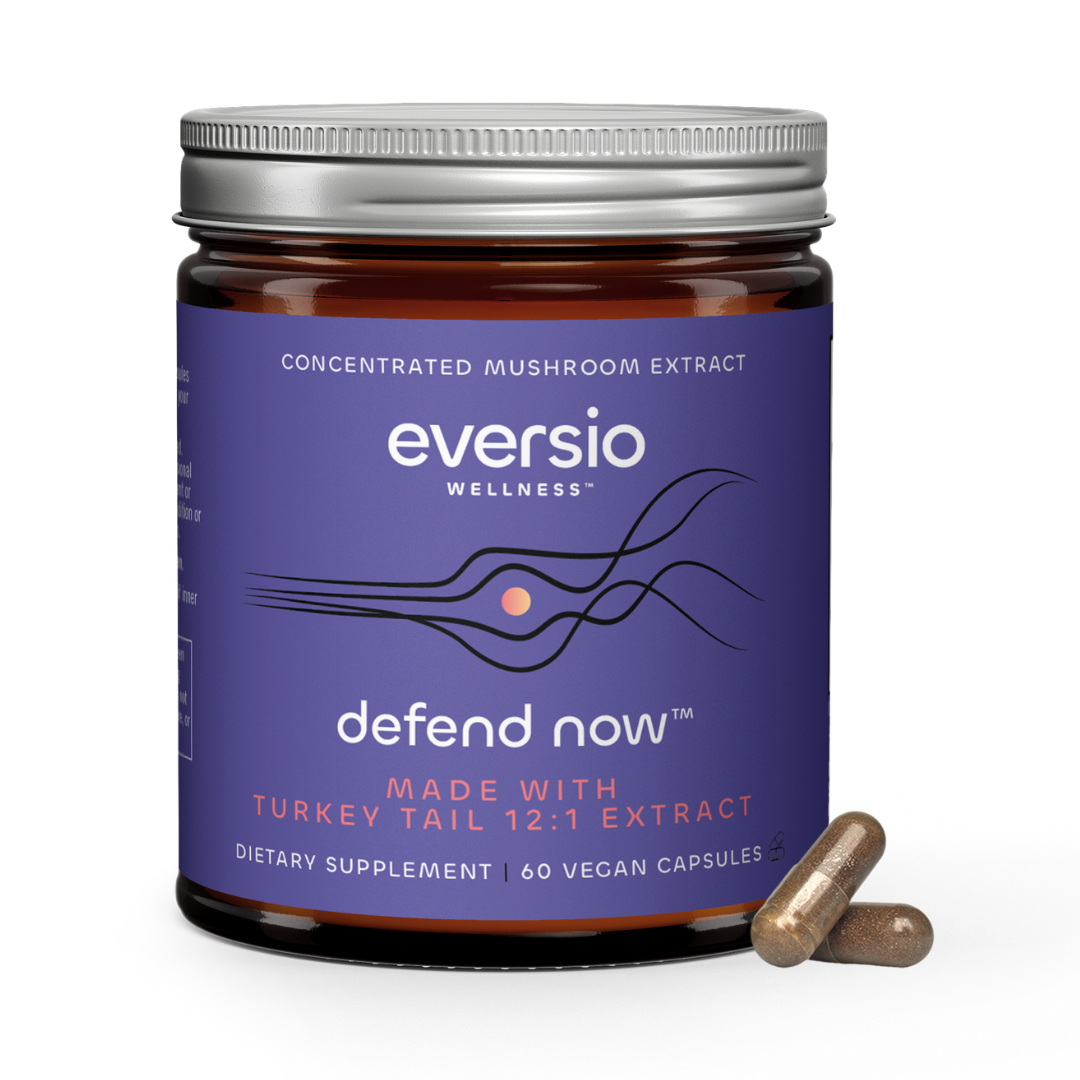
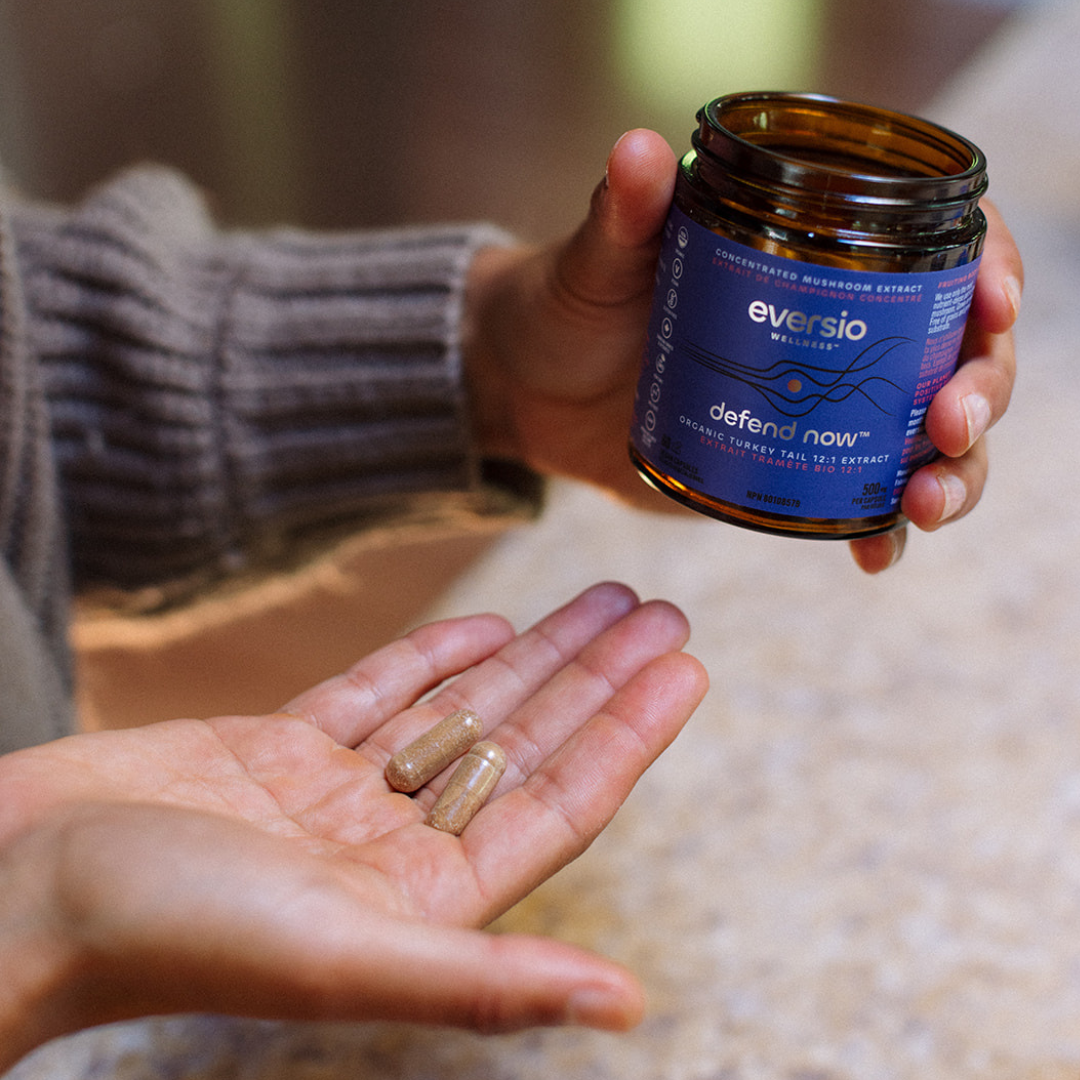
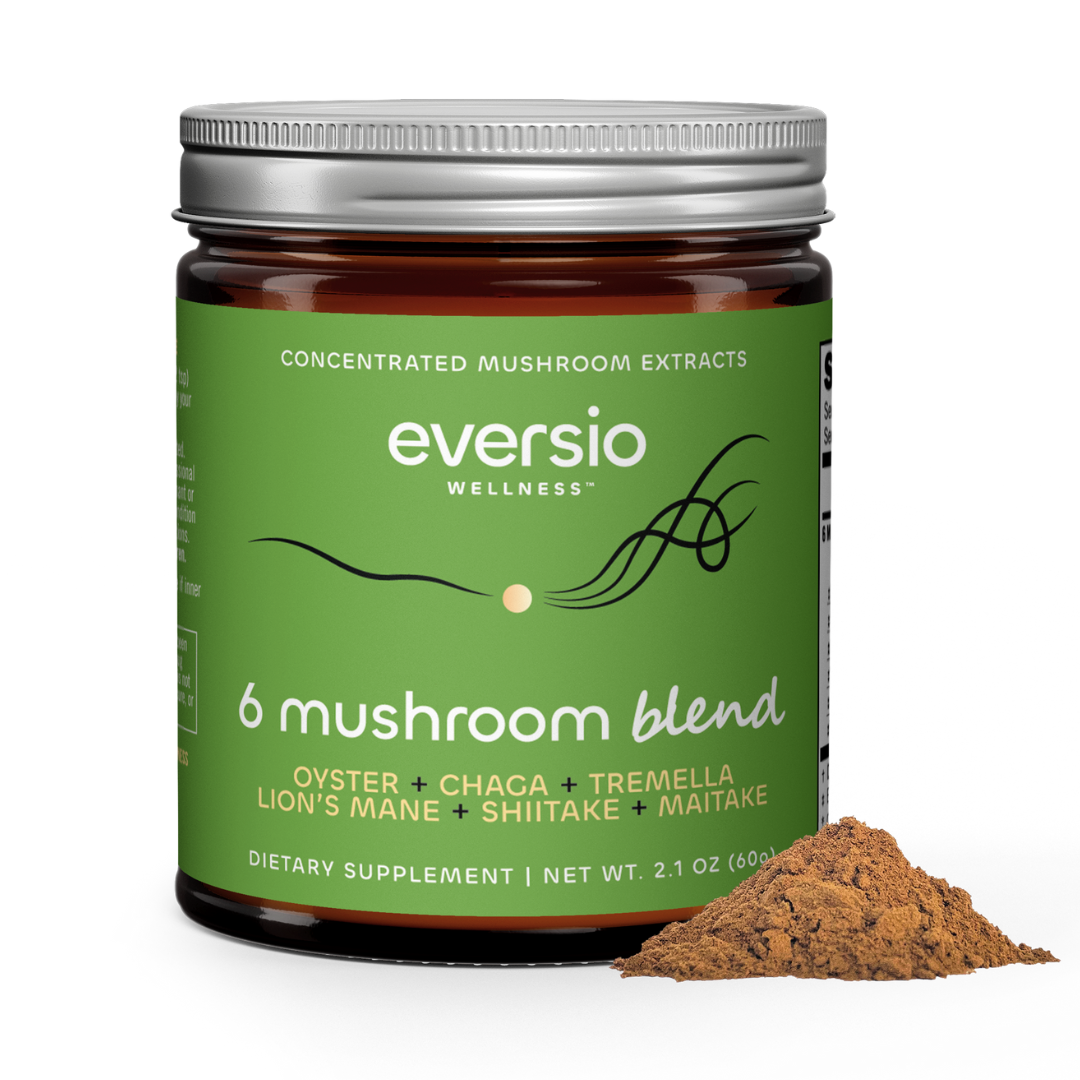
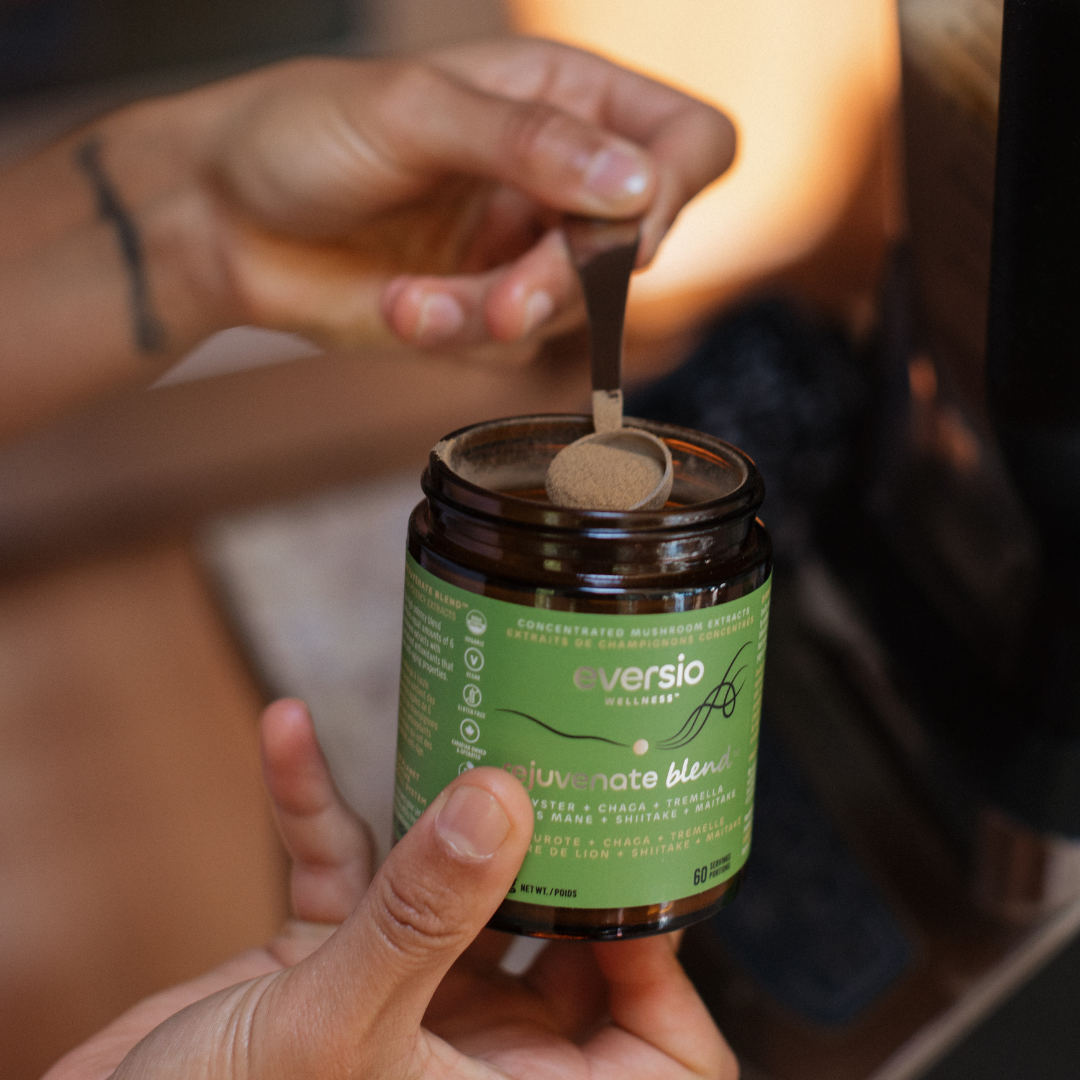
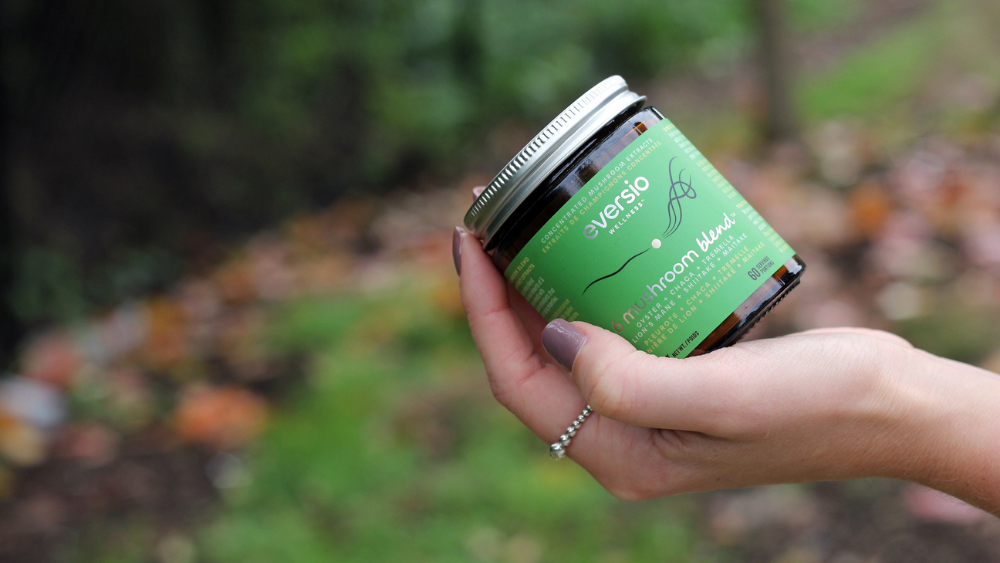
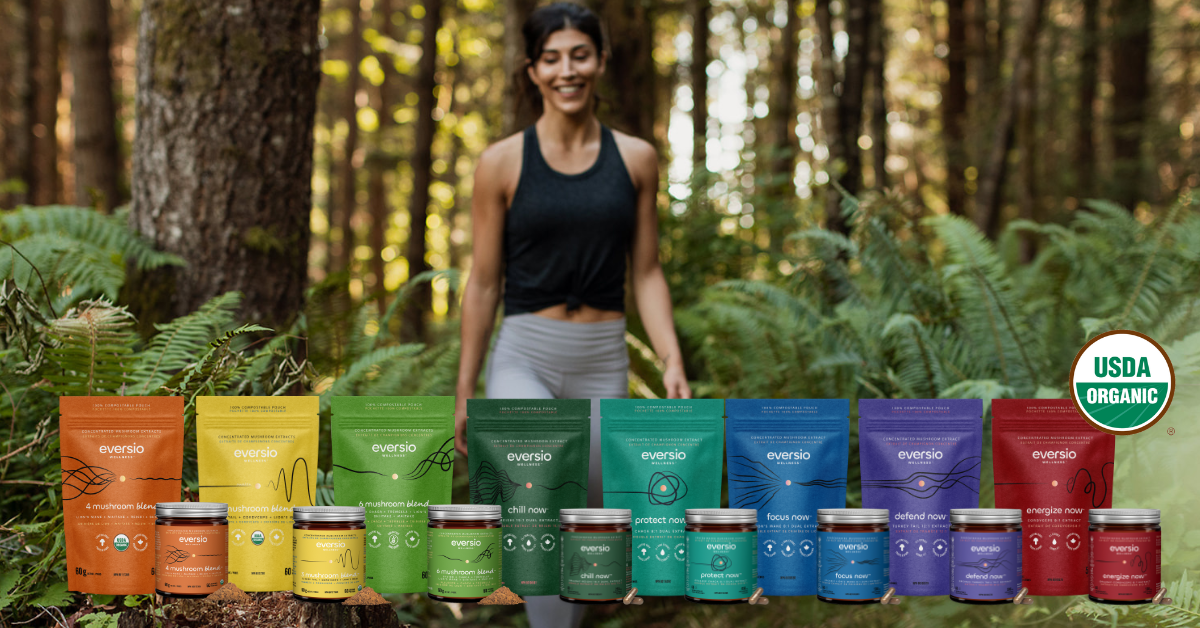






Leave a comment
This site is protected by hCaptcha and the hCaptcha Privacy Policy and Terms of Service apply.